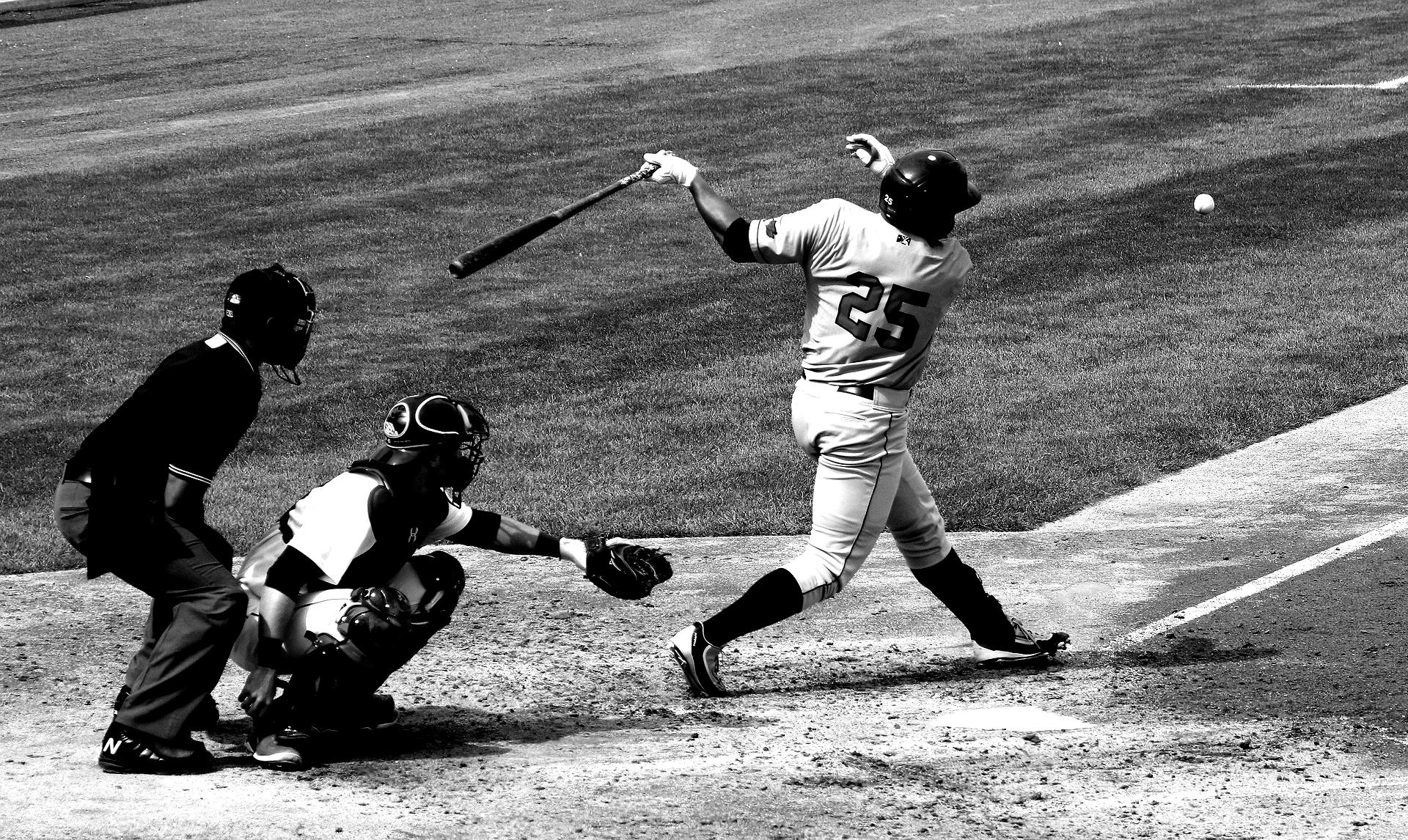
Asking This One Question Will Save Your Trading
Trading is a practice.
Kind of like how playing baseball is a practice. A pro MLB player trains, develops skills, and puts far more hours into preparing for the game than playing the actual game itself.
Trading is no different – how we prepare before the actual session can lead to success or failure at the time of performance and this will impact our profitability over the long run.
Now, when a pro baseball player arrives before a game, do you think he just arrives to the stadium before game time, walks up to the plate, and takes a hit?
No!
Before a game, any athlete will warm up and mentally prepare for showtime.
And as traders we should be doing the same.
When it comes to trading, warming up and getting mentally prepared are things we should be doing before we place our first trade.
Warming up can look like analyzing the chart, going over the week’s journal entries, back-testing a trade that happened in an earlier session, or reviewing past trades.
But the majority of our time before a trade should be spent becoming mentally prepared. And in this article, there’s a specific question you should be asking yourself if you want to finally profit over the long run.
This question that I want you to ask yourself each day is easy to answer- it requires a simple yes or no response, and yet it’s absolutely vital.
However, this question comes with a rule.
If you can’t honestly, from the most sincere analysis of your own mind, give the answer yes to this question…you shouldn’t trade that day.
And in a minute I’ll explain why.
The question you need to ask yourself any time you sit down to trade is:
“Can I accept taking a loss today?”
If you cannot sincerely and without anxiety accept that you can take a loss on a given day, then you are not in an appropriate psychological state to trade.
One of the most difficult aspects of trading is that this activity involves facing constant loss.
And for most human beings, who have been taught all their lives to avoid failure, or to see loss as being “not good”, this can be a very difficult concept to accept.
The irony of trading is that:
- No trader will EVER win 100% of the trades they take over the course of their trading career – even professionals rack up some losses over weeks and months of trading
- It’s absolutely possible to win only 30% of your trades and still make a ton of money
Trading can be similar to sports in this way, too. The best of baseball hitters have a 0.300 batting average, which means that they only hit 3 out of 10 baseballs pitched. You don’t need to be a perfect batter to win the World Series, you just need enough of an edge.
Trading is the same – not all of your trades will win, you just need to get enough return on the ones that do so that they’ll outweigh the losses.
You’ll hear this fact stated over and over again – and yet..
..it’s still the most difficult pill to swallow of all trading psychology lessons.
The underlying concept here is that you don’t need to know exactly what the market is doing all the time. The best of financial analysis will misjudge outcomes at times, and that’s because the market is MASSIVE, capricious, and subject to many different orders, news events, and data influencing the decisions of market players. It’s not humanly possible to predict all market moves.
Instead, as responsible and disciplined traders, our goal is to use strategies and analysis that offer a high probability of winning frequently, returning large reward for the risk, or some combination of those two factors.
Once you’ve determined your strategy and you start consistently showing up to trade, your next responsibility is to take your setups when they come and to accept your losses when they hit their stop order. Hanging on to a losing trade by moving the stop loss further is a recipe for disaster.
So I suggest that when you sit down to trade, you always prep your mind for the market by asking yourself “Can I take a loss today?” As long as you can preemptively imagine yourself losing, and be okay with that outcome, then you are already in a much calmer and more prepared state than 90% of traders out there.
Write this question down somewhere you can see it when you trade and get in the practice of asking it every session.
Strategies, analysis, and learning technical tools will get you in the game but your psychological work will keep you playing for great rewards over the long run. Learning to accept losses is one of the best things you can do for your trading.




Pingback: tiger126
Pingback: บอลสเต็ป มิกซ์พาร์เลย์ ลงทุนน้อย กำไรเยอะ เริ่มต้น 2 คู่
Pingback: grayzone hacks
Pingback: llucabet
Pingback: หัวพอต Marbo
Pingback: sex boy
Pingback: รับจัดงานอีเว้นท์
Pingback: webcam
Pingback: ทำความรู้จัก ราคาพูล คืออะไร ?
Pingback: อินเตอร์เน็ตทรู
Pingback: Sevink Molen
Pingback: ทำความรู้จักกับ สยาม 855
Pingback: วิธีการเล่นสล็อต ยังไงให้ได้เงิน
Pingback: ทดลองเล่นสล็อต pg
Pingback: ทดลองเล่นสล็อต ฟรี
Pingback: แนะนำ 7 เกม สล็อตทุนน้อย
Pingback: LuckyVip77
Pingback: รับจัดงานศพ
Pingback: som777
Pingback: hit789
Pingback: Nonameauto
Pingback: ออกแบบตกแต่งภายในคอนโด
Pingback: pigspin
Pingback: lotto888
Pingback: เช่ารถตู้พร้อมคนขับ
Pingback: 5 อันดับเว็บพนันออนไลน์ดีที่สุด สมัครบาคาร่า เว็บตรงอันดับ 1
Pingback: pg168
Pingback: บาคาร่า ufa11k
Pingback: moja recenzja tutaj
Pingback: บาคาร่าเกาหลี
Pingback: ร้านเค้กวันเกิดใกล้ฉัน
Pingback: ติดตั้ง ais fiber